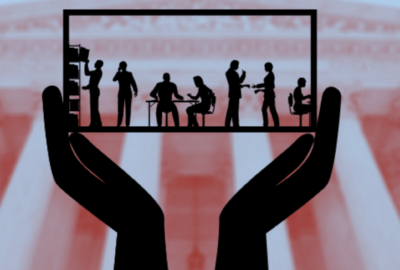Agencies given 6 months to revamp online services
President Obama issues an Executive Order requiring agencies to focus on technological and process improvements for citizen-facing services. OMB\'s Zients said ...
By Jason Miller
Executive Editor
Federal News Radio
Agencies have six months to decide which citizen-facing service will get a facelift.
President Barack Obama issued an Executive Order Wednesday requiring agencies to streamline and make services to citizens more efficient.
“[W] ith advances in technology and service delivery systems in other sectors, the public’s expectations of the government have continued to rise,” Obama wrote. “The government must keep pace with and even exceed those expectations. Government must also address the need to improve its services, not only to individuals, but also to private and governmental entities to which the agency directly provides significant services. Government managers must learn from what is working in the private sector and apply these best practices to deliver services better, faster, and at lower cost.”
To that end, the White House detailed eight steps departments and agencies must take over the next six months.
“Just like large corporations, the government processes countless transactions,” said Jeff Zients, the federal chief performance officer and deputy director for management at the Office of Management and Budget, at a White House event Wednesday. “But too few agencies have effectively modernized their customer interactions so the public still accesses most government services by standing in line, waiting on hold and filling paper-based forms. As a result too often we are 0-for-2 costs are too high and customer service lags behind.”
Agencies must decide which citizen facing service will use technology to make it more efficient and effective.
The Executive Order also calls for agencies to develop a customer service plan detailing how they streamline services, solicit feedback on a real-time basis and incorporate it into their processes and adopt proven private sector best practices.
“There is a clear opportunity to adopt lower cost services approaches while still satisfying your customers,” Zients said. “Agencies cannot fall into the trap of viewing decreased funding levels as an excuse for the status quo or for accepting diminished service levels.”
In the order, Obama wrote better customer service could include “self-service options accessed by the Internet or mobile phone and improved processes that deliver services faster and more responsively, reducing the overall need for customer inquiries and complaints.”
Zients said there are examples of agencies that have met these goals. He said the IRS received 70 percent of all tax returns this year online. This costs them 17 cents to process, or five percent of what it costs to process paper returns, and citizen satisfaction for e-filing is higher than ever before.
Zients said the Veterans Affairs Department also is improving customer service through its disability claims fast track system.
The push for better customer service is not new. The Bush administration focused on citizen services under its e-government plan. The Obama administration held meetings in 2010 with Fortune 500 executives to discuss among other things customer service.
Agencies also will streamline and consolidate the more than 20,000 websites the government currently maintained.
“While the government lags far behind, and it would clearly be better if we didn’t find ourselves in this position, I think there is a hidden opportunity here,” Zients said. “I like to think of it as the federal government’s late mover advantage. Because the government is behind the potential for upside is substantial and the way to capture the upside is clear, we can learn what works and what doesn’t work in other sectors. We can avoid the costs and inefficiencies of earlier stage technologies by leapfrogging them all together. We can adopt proven best practices and state of the art solutions. This late mover advantage gives me real optimism that we can continue to improve productivity and save money across the government.”
(Copyright 2011 by FederalNewsRadio.com. All Rights Reserved.)
Copyright © 2024 Federal News Network. All rights reserved. This website is not intended for users located within the European Economic Area.





